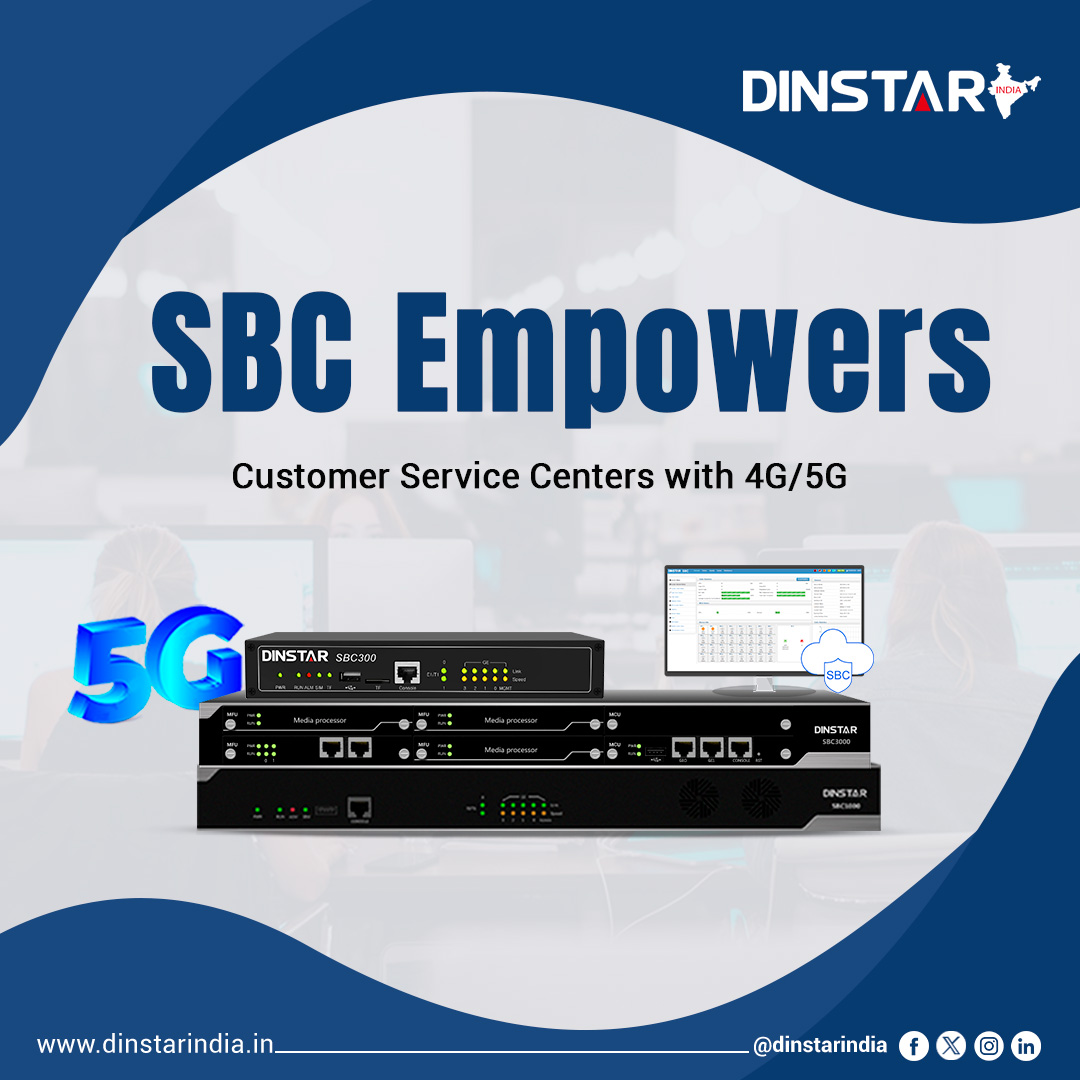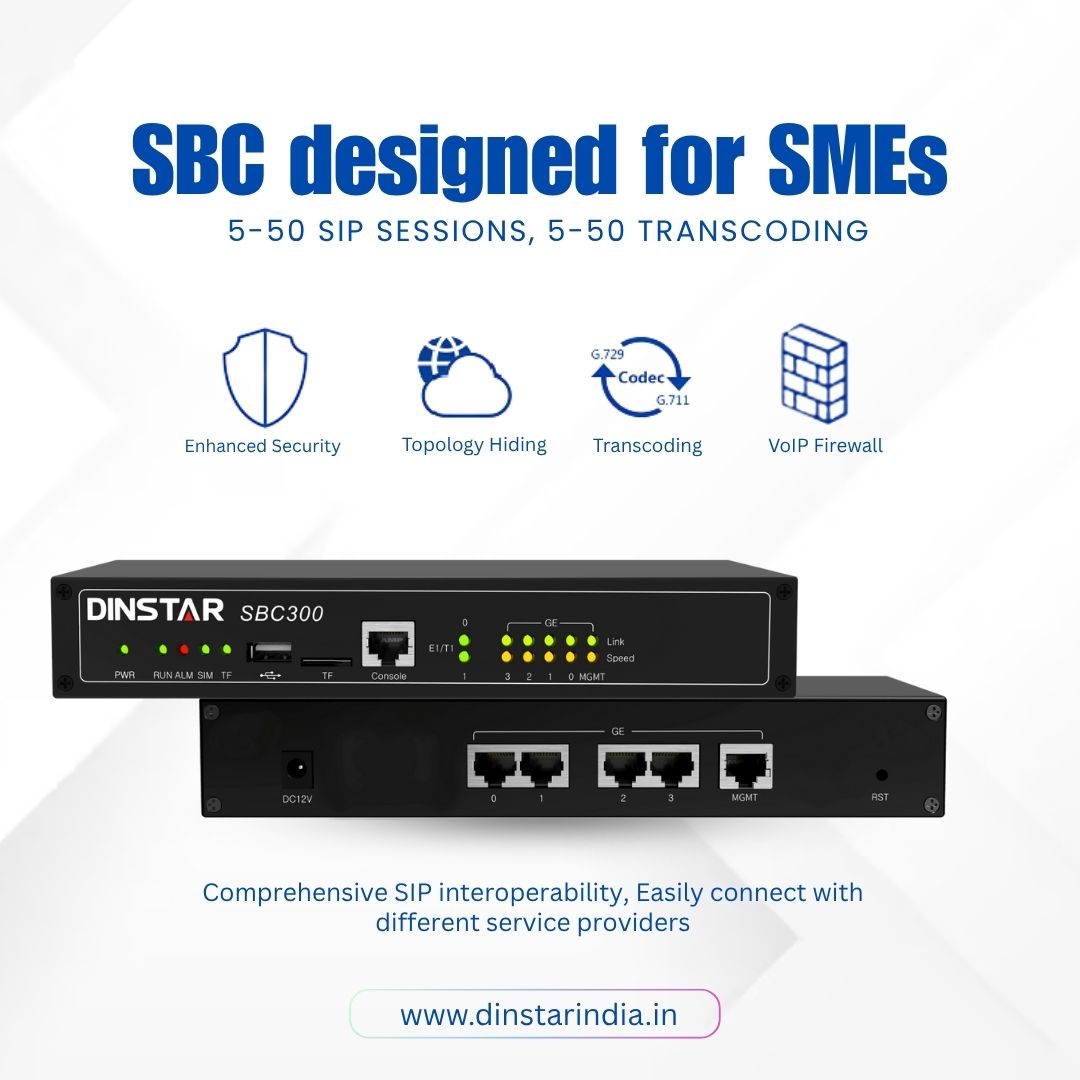What is a Session Border Controller (SBC) and Why Your Business Needs One

Strong 8k brings an ultra-HD IPTV experience to your living room and your pocket.
In today’s digital era, businesses increasingly rely on Voice over Internet Protocol (VoIP) to manage communication across teams, clients, and partners. But with the growing complexity of internet-based calls, security and quality assurance have become vital concerns. This is where a Session Border Controller (SBC) steps in.
An SBC acts as a guardian and facilitator for VoIP communications, ensuring smooth, secure, and uninterrupted call experiences. Whether you're an enterprise, telecom service provider, or ITSP, deploying an SBC can be the key to managing real-time communications effectively.
In this blog, we’ll explore what a Session Border Controller is, how it works, and why it plays a crucial role in modern VoIP infrastructure.
What is a Session Border Controller (SBC)?
A Session Border Controller (SBC) is a network element deployed at the border between two VoIP networks. It manages all signaling and media streams involved in setting up, conducting, and tearing down VoIP calls or video communications.
It’s typically placed between a private enterprise network and the public internet or between two service provider networks. The SBC ensures security, interoperability, call routing, policy enforcement, and Quality of Service (QoS).
Key Functions of a Session Border Controller
Here are the primary functions an SBC performs:
1. Security
SBCs protect VoIP networks from threats like:
- Denial-of-Service (DoS) attacks
- Call fraud and spoofing
- Toll fraud
- Unauthorized access
By monitoring signaling and media traffic, an SBC filters out malicious attempts and ensures that only legitimate traffic passes through.
2. Interoperability
Different VoIP systems and SIP (Session Initiation Protocol) implementations may not always work together smoothly. SBCs handle protocol normalization and media transcoding, making communication possible between dissimilar networks or devices.
3. Quality of Service (QoS)
SBCs monitor and manage voice call quality. They perform:
- Traffic shaping
- Bandwidth management
- Codec adaptation
This helps maintain high voice clarity and prevents jitter, latency, or packet loss.
4. Call Routing and Policy Enforcement
SBCs enforce business rules related to:
- Call admission control
- Session management
- Bandwidth usage
- Geographical restrictions
You can set policies for routing traffic based on time, priority, or user roles.
5. NAT Traversal
Many VoIP devices are located behind firewalls and NAT (Network Address Translation). SBCs handle NAT traversal to ensure seamless call initiation and termination between endpoints on different networks.
Types of Session Border Controllers
SBCs can be categorized into the following types based on deployment:
1. Enterprise SBC (eSBC)
Used by businesses to secure and manage their internal VoIP traffic. It protects the enterprise network from the public internet and ensures quality communication with SIP trunk providers.
2. Carrier-Grade SBC
Designed for telecom operators and VoIP service providers, carrier-grade SBCs handle massive traffic volumes and offer advanced features like lawful interception, high availability, and load balancing.
3. Cloud-Based SBC
As cloud telephony grows, cloud-based SBCs offer scalable and virtualized solutions, reducing hardware dependencies while maintaining strong control over VoIP traffic.
Why Your Business Needs a Session Border Controller
Here’s why investing in an SBC is a smart move:
Enhanced VoIP Security
The open nature of IP networks makes VoIP systems vulnerable to attacks. SBCs create a secure buffer, encrypt signaling and media streams, and block unauthorized attempts to disrupt your communication.
Compliance and Monitoring
SBCs help businesses meet legal and regulatory requirements, including lawful interception and record keeping for communication.
Superior Call Quality
By managing call traffic intelligently and resolving codec mismatches, SBCs significantly boost voice quality and minimize disruptions.
Network Efficiency
SBCs optimize bandwidth utilization, prioritize mission-critical communication, and prevent network congestion during high call volumes.
Interoperability
Dealing with multiple VoIP systems or SIP providers? An SBC ensures they all work in harmony without manual adjustments or compatibility issues.
Key Features to Look for in an SBC
When choosing an SBC for your business or service, consider the following capabilities:
- Support for SIP and RTP protocols
- Media transcoding and codec support
- TLS and SRTP encryption
- High Availability (HA) and redundancy
- Real-time traffic monitoring
- QoS configuration and call admission control
- Firewall and intrusion detection integration
Use Cases of Session Border Controllers
Enterprises with SIP Trunking
For businesses connecting to external carriers via SIP trunking, SBCs are essential to manage interoperability and protect against external threats.
Call Centers
SBCs ensure clear and uninterrupted conversations while managing traffic load from hundreds of concurrent calls.
Service Providers
Telecom operators rely on SBCs to handle complex peering relationships and provide seamless cross-network connectivity.
Unified Communication Platforms
For UC systems like Microsoft Teams or Zoom Phone, SBCs ensure seamless SIP connectivity and voice quality assurance.
SBC vs Firewall: What’s the Difference?
While firewalls protect your data network, they aren’t built to manage SIP or RTP protocols used in VoIP. Firewalls may block or misroute VoIP traffic, leading to poor call quality or failed connections.
SBCs, on the other hand, are VoIP-specific gatekeepers, understanding SIP signaling and media paths. They complement firewalls by securing and optimizing real-time communication.
How Does an SBC Work?
Let’s look at the basic flow of SBC operation:
- Call Request Initiation: A SIP request is sent to establish a call.
- Signaling Inspection: SBC inspects and validates the signaling protocol.
- Security Checks: The session is scanned for potential threats.
- Media Path Handling: RTP stream is routed through the SBC with codec conversion, if required.
- Session Termination: After the call ends, the session is cleanly terminated.
Choosing the Right SBC: A Quick Guide
If you're in the market for an SBC, ask these questions:
- How many concurrent sessions do I need to support?
- Will it be on-premise or cloud-based?
- What type of VoIP services and SIP trunk providers do I use?
- Do I need support for video, fax, or other media formats?
- What level of redundancy and uptime do I require?
Future Trends in SBC Technology
As the demand for real-time communication grows, so does the importance of SBCs. Key upcoming trends include:
- AI-based call analytics
- SBC as a Service (SBCaaS)
- Support for WebRTC
- 5G-ready SBCs
- Zero Trust VoIP Security Frameworks
Conclusion
In a VoIP-dominated communication landscape, a Session Border Controller is not just a luxury—it's a necessity. From securing your voice traffic to optimizing call quality and enabling cross-platform interoperability, an SBC acts as the backbone of any robust VoIP infrastructure.
Whether you’re a growing business or a telecom provider, investing in a reliable SBC can elevate your communication system while safeguarding it from emerging threats.
Note: IndiBlogHub features both user-submitted and editorial content. We do not verify third-party contributions. Read our Disclaimer and Privacy Policyfor details.







